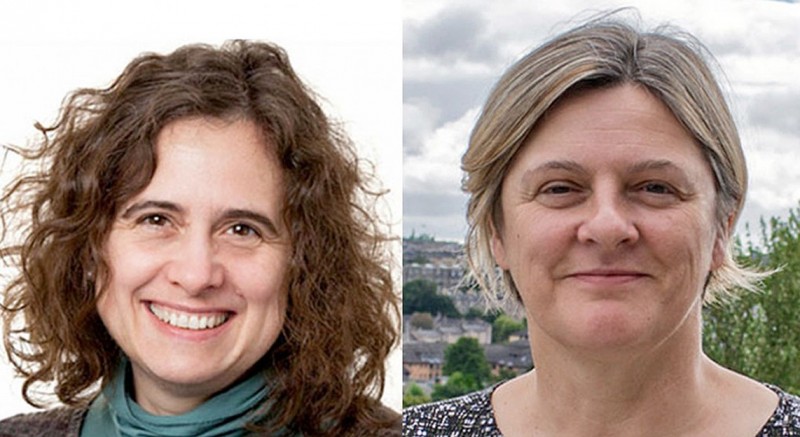By Charlotte Davison
Today saw the announcement of this year’s crop of new Fellows of the Royal Society. The award is one of the highest scientific accolades, recognising significant contribution to their field as judged by their peers.
Amongst this year’s new fellows are 13 women, two from the field of epigenetics; Professor Anne Ferguson-Smith, head of the department of genetics at the University of Cambridge and newly appointed chair of the MRC’s Molecular and Cellular Medicine board, and Professor Wendy Bickmore, Director of the MRC Human Genetics Unit, which is part of the MRC Institute of Genetics and Molecular Medicine at the University of Edinburgh.
Epigenetics is the study of gene control, and one of the three main research themes at the MRC London Institute of Medical Sciences. LMS Institute Director, Professor Amanda Fisher, said: “Today’s awards recognise the outstanding achievements of Anne and Wendy and evolving maturity in the study of epigenetics and chromatin. I’m thrilled for both of them.”

Professor Anne Ferguson-Smith (left) and Professor Wendy Bickmore (right) were both elected FRS today for their work in epigenetics
Professor Ferguson-Smith studies the molecular events governing pre- and post- natal mammalian development. She has published extensively on the epigenetic mechanisms involved in genomic imprinting and the wider context of development. In 2014, she was a recipient of the Institute’s Suffrage Science award for women in science. These awards celebrate the scientific achievement of women and inspire others to reach senior positions in their field. The scheme builds a network of women linked across generations as each awardee nominates a successor to receive their “heirloom” award. The awards themselves are pieces of jewellery designed by students of the Central Saint Martins-UAL college of art and design, inspired by science and by the Suffragette movement for votes for women. You can read more about the scheme here.
“I think that Wendy and I have been in the field since the beginning, and I think we would both call ourselves hard-core epigeneticists,” said Professor Ferguson-Smith. “Epigenetics has grown as a discipline, particularly in recent years. Hopefully we can be role models for epigenetics.”
“I’ve been really fortunate the science has taken me by the hand and led me in all kinds of different directions and it’s just been a pleasure. I have no idea what I’m going to be doing in five years’ time. It’s a field that has so much breadth to it. It’s so exciting and I’ve tried to let the science guide me about the questions. I feel I’m just a slave to epigenetics. I just do what the data tells me to do and it’s taken us into all sorts strange directions.”
Professor Bickmore takes a multidisciplinary approach to study the packaging and organisation of the genome within the nucleus. Her main focus is on understanding alterations in organisation during development and disease, part of which is controlled by epigenetic mechanisms. This has led to many discoveries including the recent identification of a new class of active functional enhancers marked by histone acetylation (Nature Genetics, 2016).
“I’ve got a great big grin on my face. I’m so happy and thrilled, it’s wonderful to gain the recognition of your peers,” said Professor Bickmore. “We all need that boost now and again, it gives you the confidence that you’re doing something right”. It clearly shows that epigenetics is a growing area of biology,” she added. “We’ve got past showing that there is an epigenome. I’m very happy for Anne as well.”
Venki Ramakrishnan, President of the Royal Society, said: “Science is a great triumph of human achievement and has contributed hugely to the prosperity and health of our world. In the coming decades it will play an increasingly crucial role in tackling the great challenges of our time including food, energy, health and the environment. The new Fellows of the Royal Society have already contributed much to science and it gives me great pleasure to welcome them into our ranks.”
This year 13 women and 37 men were elected fellows. At 26%, the number and proportion of women is the same as last year. Ten new Foreign Members are also elected, 2 of whom are women. The gender balance within these awards has been under close scrutiny. The Royal Society and science as a whole have struggled with issues of diversity and a dearth of women reaching senior positions and making it through to FRS recognition. The Society has made efforts to tackle diversity in science with various initiatives, including raising awareness of unconscious bias.
Read today’s full press release from the Royal Society here.



